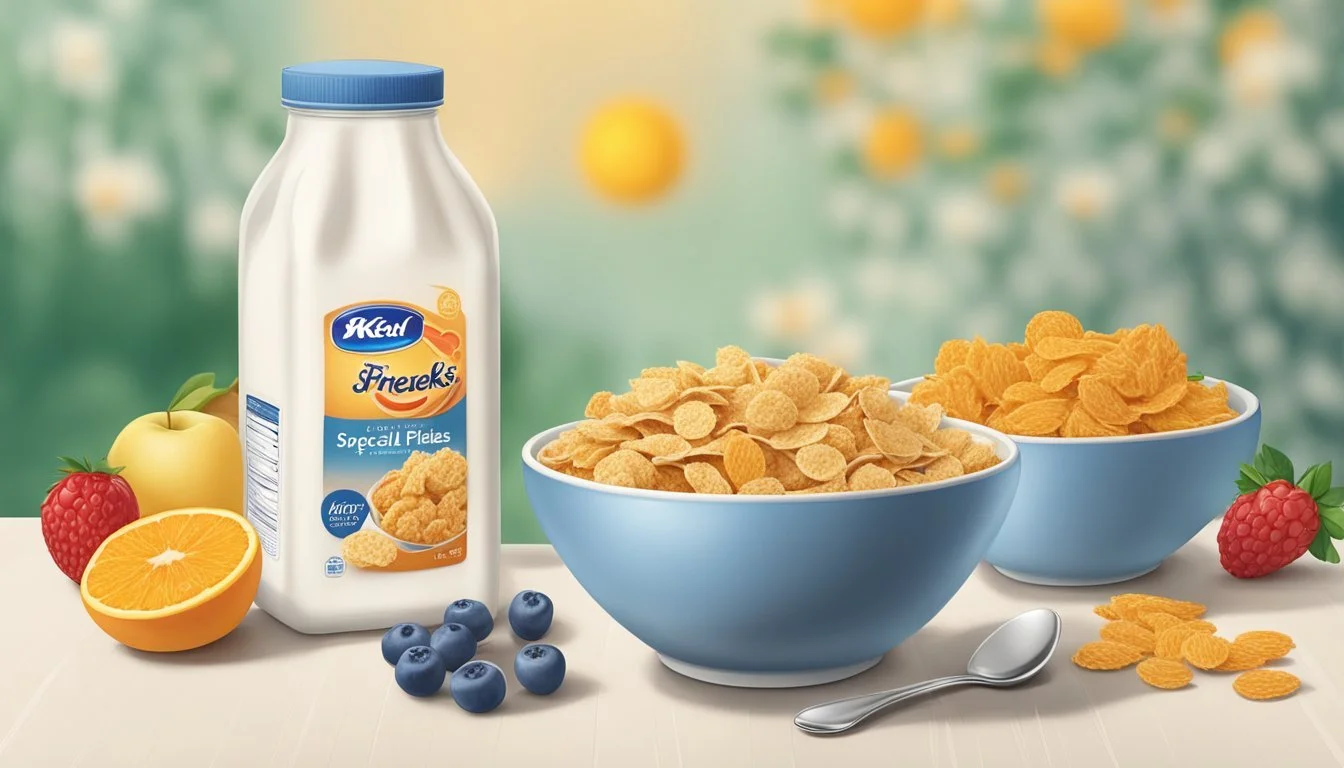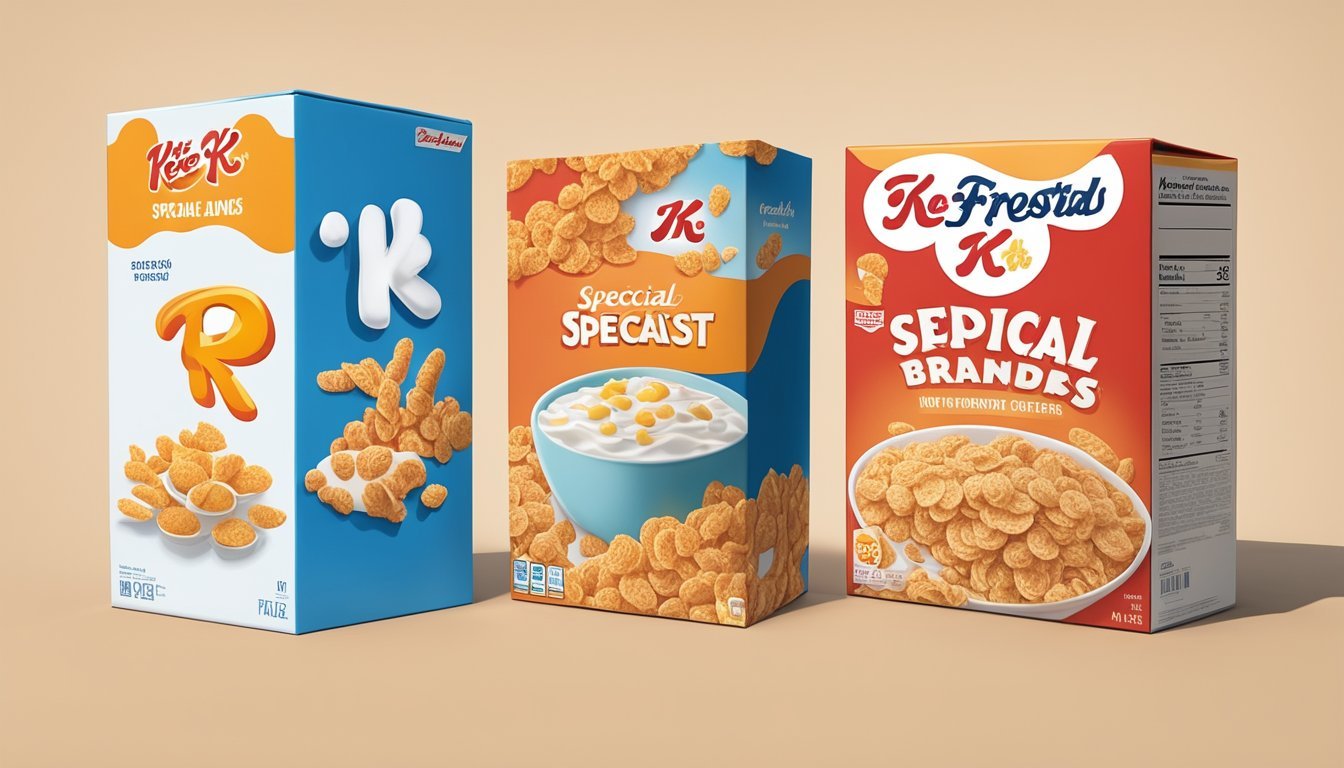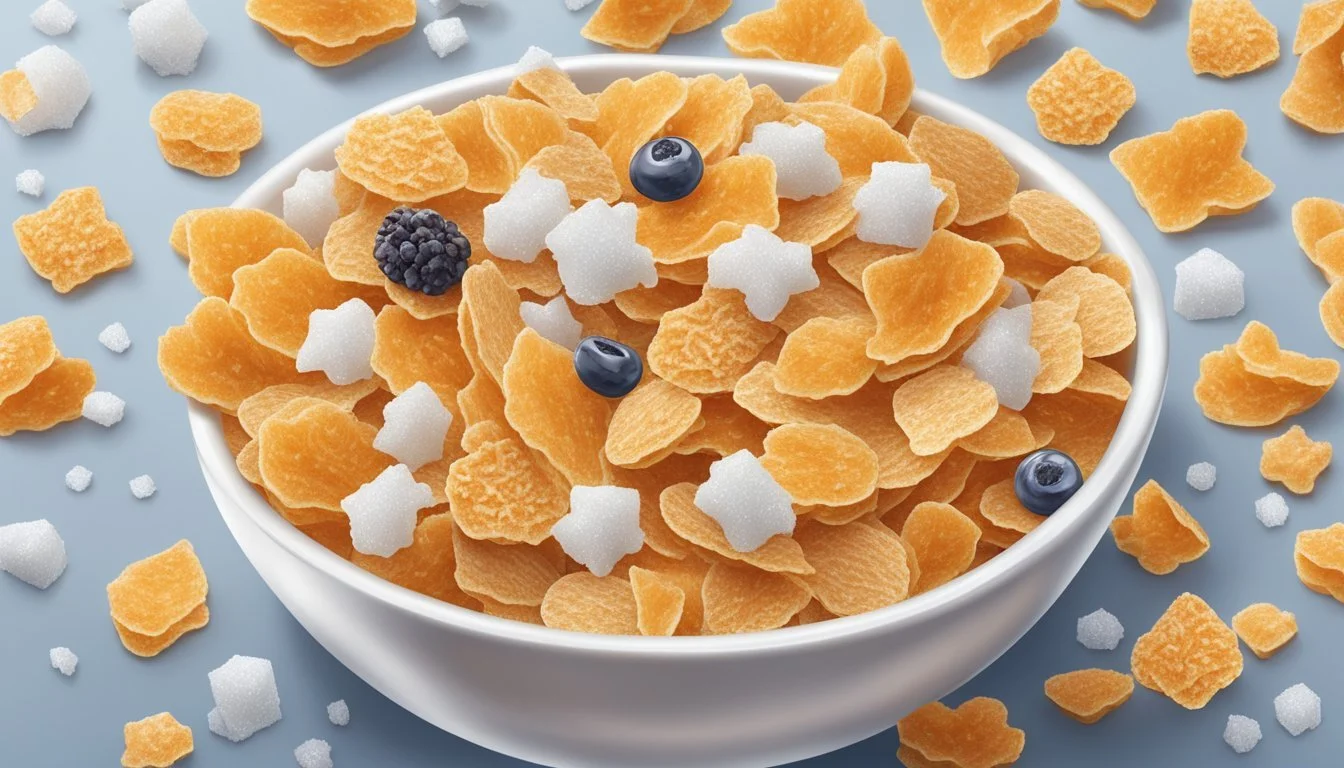Frosted Flakes vs Special K
Nutritional Comparison and Benefits
This Article is Part of Our Breakfast Cereal Guide with Details on Frosted Flakes Nutrition and Special K Nutrition
When it comes to breakfast choices, Kellogg's Frosted Flakes and Special K often come to mind. Each cereal has its own unique set of nutritional benefits. Special K is higher in Vitamin B12, Folate, and Vitamin C, making it a more nutrient-dense option. This makes it particularly appealing to those looking for additional vitamins in their diet.
On the other hand, Frosted Flakes is known for being richer in Vitamin B3 and Vitamin B1. These vitamins play crucial roles in energy metabolism and overall cellular function. For those prioritizing these nutrients, Frosted Flakes might be the preferred choice.
Beyond vitamins, the two cereals differ in their macronutrient content. Special K contains more protein and fiber per serving compared to Frosted Flakes. This can make Special K a more satiating and potentially healthier option for those looking to manage their weight or improve their digestion.
Historical Background of the Brands
Kellogg's Frosted Flakes cereal and Kellogg's Special K are two iconic breakfast cereals that have distinct histories. Their evolution reflects changes in consumer preferences and nutritional trends over the decades.
Origin of Frosted Flakes
Kellogg's Frosted Flakes, originally known as "Sugar Frosted Flakes," was introduced in the United States in 1952. Created by W.K. Kellogg, the cereal quickly became popular due to its sweet, crunchy texture.
The cereal was initially marketed as a sweeter variation of Kellogg’s Corn Flakes. In 1983, the word "Sugar" was dropped from the name in response to growing health concerns about sugar consumption. Frosted Flakes are now marketed globally, even though the manufacturing and branding have regional differences, such as being produced by WK Kellogg Co in North America and Kellanova elsewhere.
Evolution of Special K
Special K made its debut in the United States in 1955. This cereal was made from lightly toasted rice, wheat, and barley. It was initially promoted as a low-fat option, suitable for those looking to maintain a healthy weight. Over the years, Special K has expanded beyond its original cereal form to include meal bars and other snack options.
Post-2023, Kellogg's Special K saw a significant change with the spinoff of Kellogg’s North American cereal business into a new entity. This shift allowed for a renewed focus on health-oriented marketing, reinforcing its image as a nutritious choice rich in vitamins and minerals like B12, B6, and folate.
Comparative Analysis
Frosted Flakes and Special K, two popular cereals by Kellogg's, present distinct differences in nutritional content, health impacts, and sensory experiences. This analysis dives into these differences, aiding readers in making informed choices.
Nutritional Content Comparison
Calories: Frosted Flakes offer 110 calories per serving, while Special K provides 90 calories per serving.
Proteins: Special K has a slight edge with 6 grams of protein per serving, as opposed to Frosted Flakes' 1 gram.
Fiber: Special K contains more fiber at 2 grams per serving, compared to Frosted Flakes' negligible amount.
Sugars: Frosted Flakes have a higher sugar content, adding up to 10 grams per serving, while Special K contains only 4 grams.
Fats: Both cereals are low in fat, with Frosted Flakes having 0 grams and Special K slightly higher at 0.5 grams.
Vitamins and Minerals: Special K is fortified with more vitamins and minerals, offering significant amounts of Vitamin A, Vitamin C, and iron, making it a more nutrient-dense option.
Health Impact Assessment
Sugar Content: The higher sugar content in Frosted Flakes raises concerns about long-term health impacts like weight gain and blood sugar spikes.
Protein and Fiber: The higher protein and fiber in Special K contribute to longer satiety, aiding in weight management and improved digestive health.
Vitamins and Minerals: Special K's rich vitamin and mineral profile supports overall health, especially for those looking to boost their nutrient intake through breakfast.
Glycemic Index: Special K has a lower glycemic index compared to Frosted Flakes, implying a more gradual release of sugar into the bloodstream, thus helping with better blood sugar management.
Taste and Texture Examination
Taste: Frosted Flakes are known for their sweet and sugary flavor, which is appealing to children and those with a sweet tooth. Special K, on the other hand, offers a more neutral and slightly savory taste.
Texture: Frosted Flakes provide a crunchier texture due to the sugar coating, which can become soggy quickly when submerged in milk. Special K maintains a consistent crunch and doesn’t become overly soggy as fast as Frosted Flakes.
Variety: Frosted Flakes stick to their classic sugary flavor, while Special K offers a range of variations including flavors with added fruits and nuts, catering to diverse taste preferences.
Each cereal offers unique benefits and considerations that can help consumers select the best option tailored to their nutritional and sensory preferences.
Ingredient Breakdown
The key differences between Frosted Flakes and Special K lie in their primary ingredients and the nutritional values they offer. Frosted Flakes is sugar-coated and has higher carbohydrates, while Special K provides a blend of grains and is fortified with a variety of vitamins and minerals.
Key Ingredients in Frosted Flakes
Frosted Flakes mainly utilizes corn as its primary ingredient. The cereal is then coated with a layer of sugar, contributing significantly to its taste and high carbohydrate content.
Corn is the base, contributing to its crunchy texture. Aside from corn and sugar, the ingredient list includes malt flavoring and salt. There's no presence of whole grains, making it less beneficial in terms of fiber content compared to some other cereals.
In terms of micronutrients, the cereal is typically fortified with vitamins such as Vitamin D and B-group vitamins. However, it doesn't offer much in terms of iron, calcium, and other minerals. Fats and sodium content are kept relatively low, aligning with its focus on being a sweet, corn-based breakfast option.
Key Ingredients in Special K
Special K is notable for its blend of whole grains, primarily rice, wheat, and a smaller amount of whole grain oats. This mixture contributes to its higher fiber content compared to Frosted Flakes.
The ingredient list typically includes whole grain wheat, rice, sugar, wheat gluten, and defatted wheat germ. It also consists of various vitamins and minerals, making it a richer source of nutrients like vitamin B12, folate, vitamin B6, vitamin E, selenium, vitamin C, iron, and copper. The specific blend may vary, but the focus remains on a balanced nutrient profile.
Special K usually has less sugar than Frosted Flakes, especially in its original flavor, making it a slightly healthier alternative in terms of lower saturated fat and sodium content. It often contains added dietary fibers to enhance digestive health, a point worth noting for those looking to increase their fiber intake.




